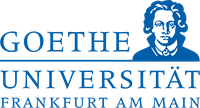Zusammenfassung
- Was Stellenangebot — 3 Professorships
- Wann to (Europe/Berlin / UTC200)
- Wo Frankfurt am Main — Deutschland
- URL https://www.c3s-frankfurt.de/workshop-2
- Termin herunterladen iCal Datei herunterladen
Beschreibung
Prospect of 3 Professorships
for the Critical Reflection and/or Governance of Computational Technologies at the Center for Critical Computational Studies (C³S)
Exploratory Workshop | October 8th-10th, 2024, Frankfurt am Main
Goethe University Frankfurt is one of Germany's prominent universities, and steadfast in its commitment to foster equal opportunities.
The Center for Critical Computational Studies (C³S) is Goethe University’s latest innovation hub of inter- and transdisciplinary exploration. C³S is located at Campus Westend, and will move to a new Campus for Critical Computational Studies in the future.
C³S is looking for candidates for
- Three Prospective Professorships for the Critical Reflection and/or Governance of Computational Technologies (Learn more)
Calls will be open discipline and open rank (W1 to W2 Tenure Track; W2 to W3 Tenure Track; W3).
C³S seeks candidates, both national and international, who demonstrate a robust academic background, high profile publications and/or corresponding potential, a track record of interdisciplinary collaborations, a profound interest in the intersection of technological and normative approaches, and a strong interest in socially and politically relevant topics, including in stakeholder engagement, tech transfer and/or policy impact. As regards researchers in the early stage of their career, we are looking for corresponding potentials.
Workshop and Recruitment Process
From October 8th-10th, 2024, we are conducting an Exploratory Workshop to allow candidates to showcase their expertise and interdisciplinary interests in a dynamic, engaging and collaborative environment. In this regard, we encourage interested and qualified candidates to submit their respective applications using the form below up until July 4th, 2024. By the end of July 2024, the successfully selected candidates will receive their respective invitations to the workshop. Travel and accommodation costs will the covered by C³S accordingly.
The workshop will pave the way for the formal hiring process, which will be conducted by extraordinary recruitment committees (“Findungskommissionen” in German) pursuant to the Rules of Recruitment (“Berufungssatzung” in German) of Goethe University.
The professors will be recruited into C³S and given all opportunities to affiliate into their pertinent department(s) at Goethe University.
If you have any questions, e.g. about teaching, please do not hesitate to contact us.
Prospect of Three Professorships for the Critical Reflection and/or Governance of Computational Technologies
At C³S, we aim to analyze, reflect and/or govern/regulate computational (algorithmic, data driven etc.) technologies, and how they intersect (transform and are driven by) with society, politics, the economy, etc. The aim is to assess and design sustainable, trustworthy, and justifiable computational methods.
Candidates are encouraged to collaborate across disciplinary boundaries. Key disciplinary backgrounds include, but are not limited to: Digital Anthropology, Digital Geography, Digital Sociology, IT Law, Science and Technology Studies (STS), Political Theory, Ethics in Computation, Philosophy of Media, Science, and Technology.
Candidates are expected to demonstrate a strong and genuine commitment to interdisciplinary research and teaching.
Possible approaches include, but are not limited to:
- Assessing and critically reflecting upon, including by computational means, the (political, financial, planetary, gender etc.) power dynamics of and in algorithms and computational systems, acknowledging how these structures can perpetuate or challenge existing hierarchies.
- Examining the social (political, economic, cultural etc.) consequences of data-driven decision-making, exploring how computational approaches shape policy, norms, and public discourse, and how they (re)produce, reinforce, destabilize, or mitigate relations of inequality.
- Investigating the potential of computational methods in addressing and mitigating social inequalities, particularly in the context of digital access and information distribution.
- Reflecting on the role of individual and collective human agency (including democratic control and oversight) in the context of computational systems, acknowledging the need for a nuanced understanding of the relationship between technology, individuals, society, data responsibility and data maturity.
- Exploring the epistemological and ontological assumptions that underpin the development of digital technologies and computational models, discussing how these assumptions influence the design, implementation, and societal impact of computational systems, and proposing alternative perspectives that foster more inclusive and ethical technological landscape.
- Evaluating digital infrastructure and data governance practices, including the regulation of data use, privacy, property rights, and the management of digital resources.

